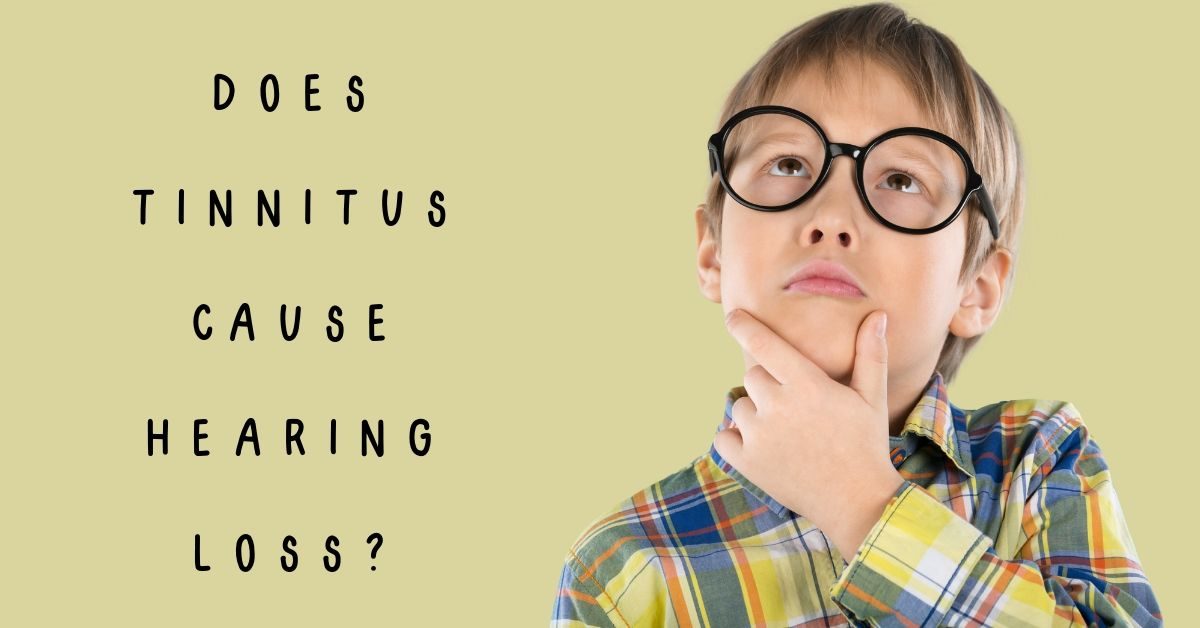Recall the last time you were in a very loud environment, perhaps a noisy restaurant, a fireworks display, or a live music event. When you returned to the quiet of your home, did you notice a ringing sound that persisted? That high-pitched sound that remains in your ears after exposure to loud sounds tends to go away within a few hours. However, those who suffer from tinnitus find that the ringing sound does not fully go away. Although high-pitched ringing is the most common form of tinnitus, others might hear a whirring, buzzing, or crackling sound long after they have been exposed to a loud sound.
Although tinnitus can result from exposure to loud sounds, it is not technically the cause of hearing loss. On the one hand, you do not need to worry that experiencing tinnitus is going to make you lose your hearing. The two conditions can result from the same or quite different hearing events. On the other hand, tinnitus is a serious condition that can be debilitating. Those who have constant ringing in their ears can lose sleep due to the noise, and some experience stress that can lead to other health conditions.
Understanding Tinnitus
Just like many forms of hearing loss, tinnitus can be caused by damage to the tiny hair-like features of the inner ear. When these hairs are bent or broken, they can “leak” sound information into the auditory nervous pathway that the brain detects as an ongoing ringing sound. Although this process is different from most hearing loss, what they have in common is that those tiny, delicate hairs have suffered damage. The same hearing event can cause both tinnitus and hearing loss in some cases, linking the conditions even though tinnitus does not cause the hearing loss, per se.
Treatments for Tinnitus and Hearing Loss
Although the two conditions are distinct, the good news is that treatments are available to relieve the symptoms of both tinnitus and hearing loss. The latest hearing aids are able to address both of these conditions, making it possible to relieve the ongoing sound of ringing, whirring, clicking, or crackling that might be leaking into the auditory nervous pathway. One of the ways that hearing aids function as a tinnitus treatment is to emit a similar tone that cancels out the sound of tinnitus. When two sound waves are precisely out of phase with one another, they are no longer detected by the ears. Some hearing aids use that sonic phenomenon in essence to erase the sound of the tinnitus. Other methods are available to deal with the hissing, buzzing, roaring, or humming that might seem to assault the ears of a sufferer of tinnitus.
Hearing aids are also effective to remedy hearing loss in many cases, although the mechanism is somewhat different. Rather than combatting the ringing sound by emitting a contrasting sound in the ears, hearing aids deal with hearing loss through amplification. By capturing the sound of the world and turning up the volume, the ears are able to hear sounds that would be lost without that assistance. Hearing aids are ever better equipped to treat hearing loss in specific contexts. For instance, some people have particular trouble hearing human speech, and hearing aids can isolate the range of the voice, turning up the volume only for that type of sound. Others have trouble identifying a single speaker in a room full of chatter, and new technology is able to help the wearer of hearing aids pick out that voice. These are just a few of the remarkable innovations in hearing aid technology to remedy specific types of hearing loss through amplification.
Pacific Hearing Care
If you find that you are suffering from tinnitus, hearing loss, or both conditions at once, the first step is to contact us at Pacific Hearing Care for assistance. Our team will consult with you about the specific details of your problem and then will perform a hearing test to get a better sense of your abilities.
With this information in hand, our team will be able to point you in the direction of treatment, helping you sift through the wide array of hearing aids available on the market. Some hearing aids can treat both tinnitus and hearing loss, so don’t delay to begin the quest for better hearing!

